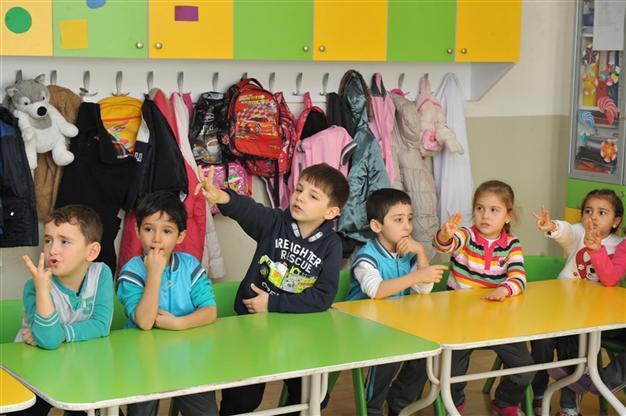Preschool religious education to start in southern Turkey district, daily claims
ISTANBUL

News of the Kadirli education board’s program comes shortly after Turkey’s National Education Council decided on Dec. 8 to recommend the introduction of “Values Education” at preschool education institutions and compulsory religion classes during the first three years of primary school. DHA Photo
A district educational board in the southern province of Osmaniye has sent a program including religious practices to all preschool institutions, according to Turkish daily Milliyet.The 21-page program, which was marked "urgent," has been sent to schools in the Kadirli district, reportedly giving the details of “Values Education” at preschool institutions.
According to the program, children aged three to six years old will start all courses with the Bismillah (“In the name of God, the most Gracious and Compassionate”) and will learn prayers in Arabic with the tajweed, the rules governing pronunciation during recitation of the Quran.
The children will also be given general information about the Quran and will also learn the Arabic alphabet, with the teacher saying Arabic prayers in a loud voice for the children to repeat.
The Bismillah and the Takbir – “Allahu Akbar” (God is the Greatest) – will also be repeated in the class.
News of the Kadirli education board’s program comes shortly after Turkey’s National Education Council decided on Dec. 8 to recommend the introduction of “Values Education” at preschool education institutions and compulsory religion classes during the first three years of primary school.
Religion classes are already compulsory from fourth grade, but the Council also recommended that the period of compulsory religion classes be increased from one to two hours per week in high schools.
The Council’s decisions have been submitted to the Education Ministry as non-binding recommendations.
The recommendations have sparked fury among secular circles within Turkey, which have expressed fears that the government is trying to impose a rigid conservative religiosity on the entire population.
















